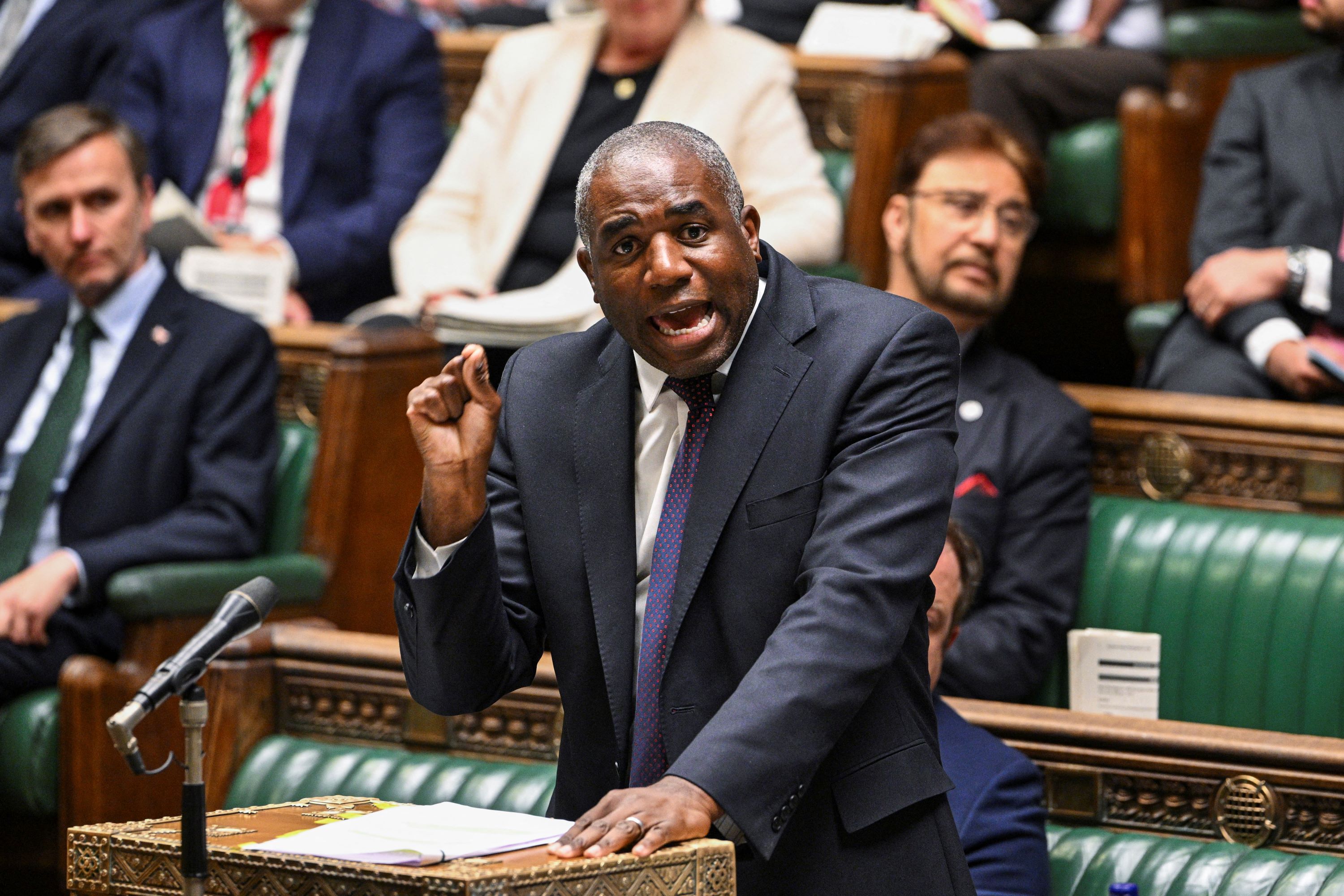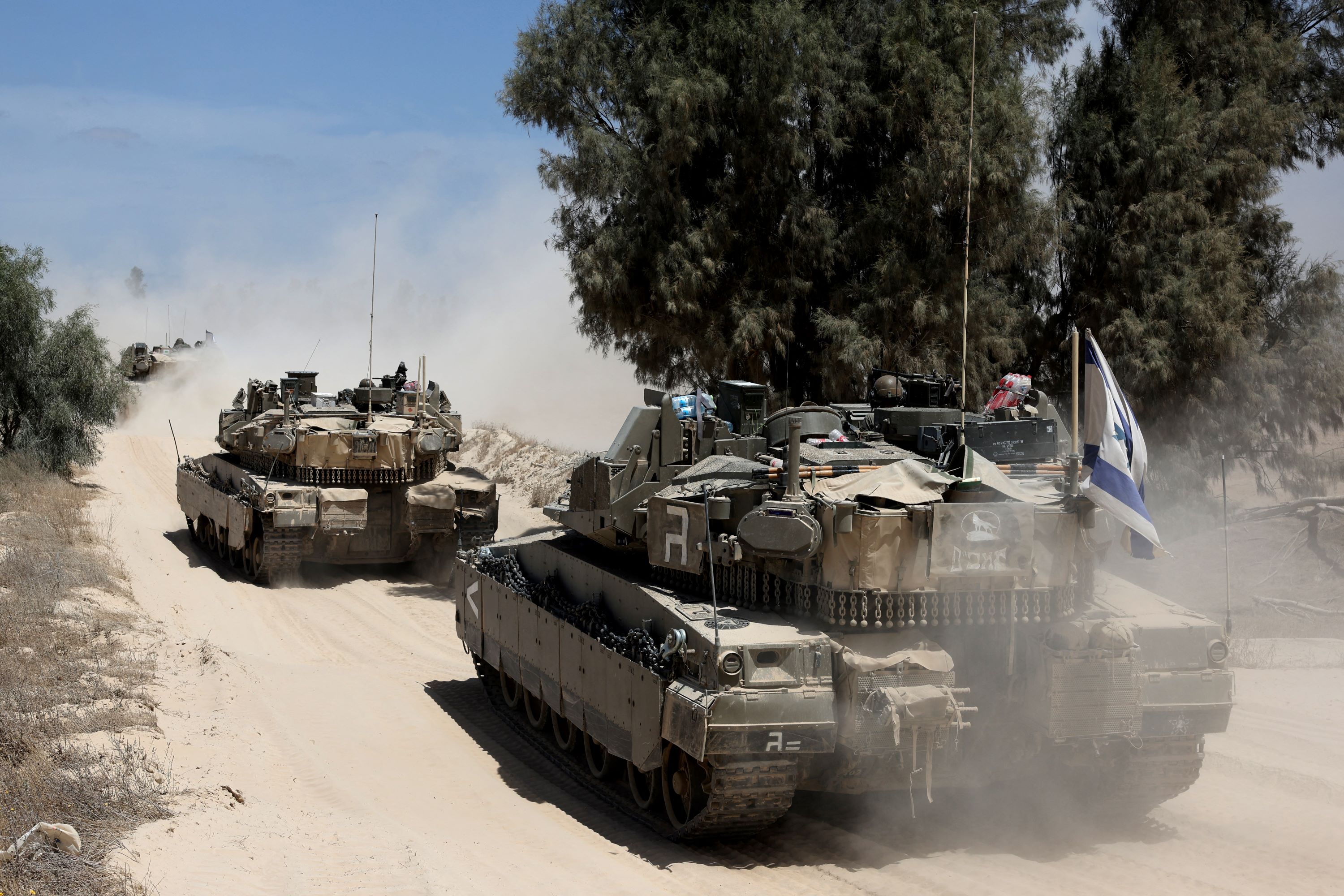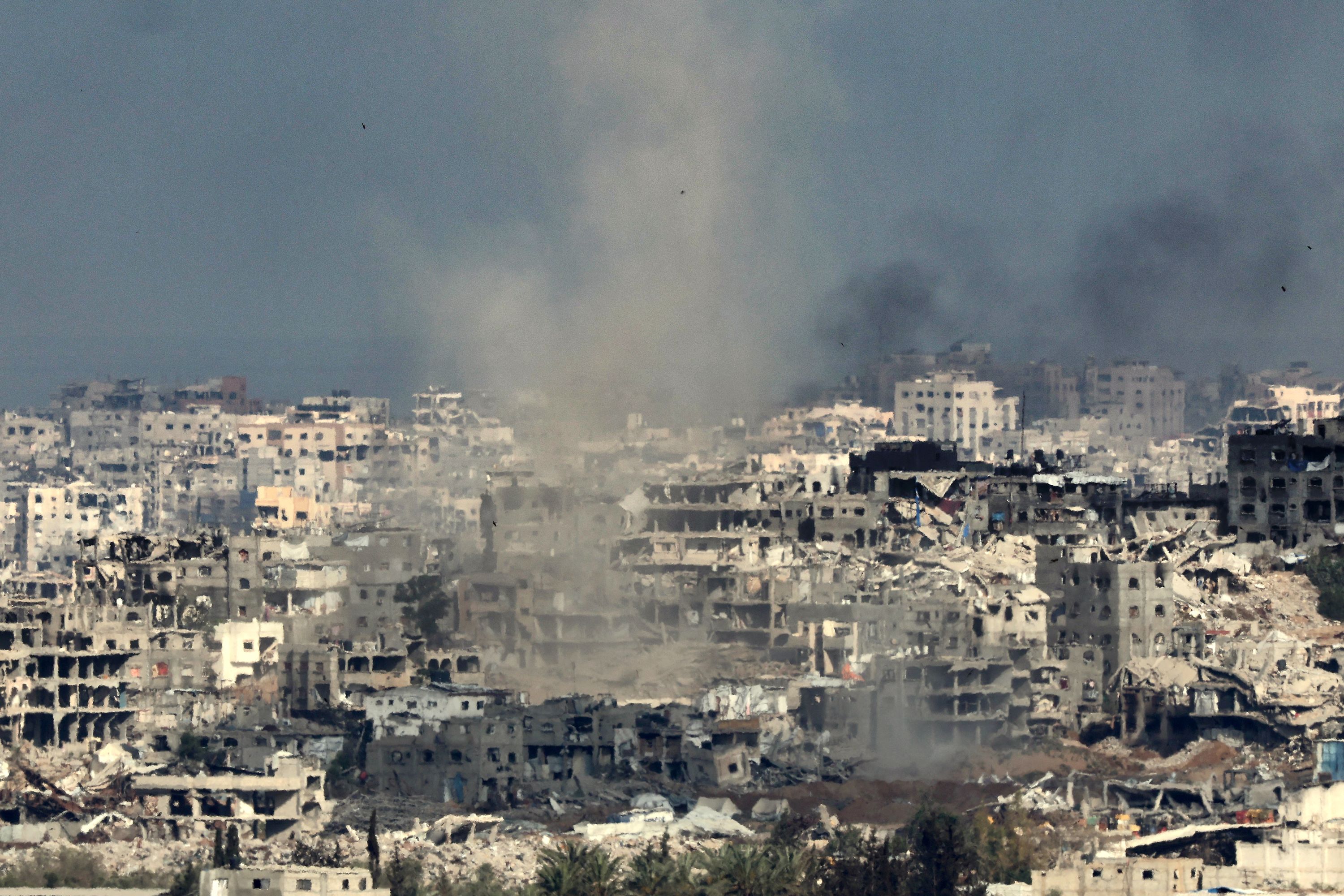
LONDON/JERUSALEM/GAZA - British Foreign Secretary David Lammy announced on Tuesday that Britain has suspended trade negotiations with Israel over its Gaza blockade. Lammy also said the Israeli ambassador had been summoned.
Lammy said in a statement in the House of Commons, the lower house of the British parliament, that Israel's blockade of Gaza is "morally wrong, unjustifiable, and it needs to stop".
Lammy said he thinks all lawmakers "should be able to utterly condemn the Israeli government's denial of food to hungry children".
British Prime Minister Keir Starmer also condemned the deepening humanitarian crisis in Gaza on Tuesday, describing the ongoing civilian suffering as "utterly intolerable", and called for an immediate ceasefire.
Addressing the parliament, Starmer said, "The level of suffering, innocent children being bombed again, is utterly intolerable", and went on to say Britain and their French and Canadian allies are "horrified by the escalation from Israel". He said an "immediate ceasefire" remains "the only way to free the hostages".
READ MORE: Gaza blockade to end amid fresh offensive
He also reaffirmed Britain's opposition to Israeli settlement expansion in the West Bank and called for a dramatic scale-up in humanitarian aid to Gaza.
"The recent announcement that Israel will allow a basic quantity of food into Gaza is totally and utterly inadequate," Starmer said. "We must coordinate our response, because this war has gone on for far too long. We cannot allow the people of Gaza to starve."
Britain, France and Canada said on Monday in a joint statement that "if Israel does not cease the renewed military offensive and lift its restrictions on humanitarian aid", they will take further concrete actions.

Israel recalls negotiation team
Israel has recalled its senior negotiation team from Qatari capital Doha for consultations after about a week of indirect talks with Hamas over a Gaza deal.
"After about a week of intensive talks in Doha, the senior negotiation team will return to Israel for consultations, while working-level officials will remain in Doha for the time being," said a statement issued on Tuesday by Israeli Prime Minister Benjamin Netanyahu's office.
ALSO READ: Britain, France, Canada vow to take actions against Israel over Gaza
The statement said Israel accepts a US-backed proposal presented by Netanyahu in March, which includes the release of additional Israeli hostages in exchange for a 50-day truce and a promise to engage in further negotiations toward a longer-term ceasefire.
However, the proposal does not include a withdrawal of Israeli forces or the release of Palestinian prisoners, two of Hamas's key demands.
Netanyahu's office said the proposal had recently been conveyed to Hamas through mediators, but "so far Hamas continues to cling to its refusal".
In a statement issued on Tuesday, Hamas announced it holds the Israeli government "fully responsible" for failing efforts to reach an agreement.
Hamas said the low-level Israeli team left in Doha lacks any authority to reach an agreement, accusing Netanyahu of "misleading world public opinion and pretending to participate in the negotiation process". According to Hamas, no real negotiations have taken place since Saturday.
ALSO READ: Israel will take control of all Gaza, Israeli PM says
The group said the escalation of the Israeli military operations while the delegations were in Doha "exposes Netanyahu's intentions of rejecting any settlement, and reveal his adherence to the option of war and destruction".
Expanding ground offensive
The Israeli military said on Tuesday that it will expand its ground offensive in Gaza and take control of additional territory.
"We will expand our operation, establish operational control over more territory, and clear and dismantle the terrorist infrastructure – until Hamas is decisively defeated," Israel's military chief Eyal Zamir said on the fourth day of Operation Gideon's Chariots, Israel's largest ground assault on the enclave in months.
Zamir said Hamas had been "severely weakened" but yet to be defeated.

Israeli military spokesperson Avichay Adraee said Israel is "entering a new phase (of operation), different in size and strength," to achieve its objectives of returning the hostages and defeating Hamas.
At least 87 people were killed in Gaza on Tuesday, according to the territory's health authorities, bringing the death toll from Israel's 19-month offensive to 53,573.
READ MORE: Arab leaders demand Gaza ceasefire, reject displacement of Palestinians
Mahmoud Basal, spokesperson for the Civil Defense in Gaza, said around Gaza City, 13 people, including women and children, were killed and several others injured in an Israeli airstrike on the Musa bin Nusair school, east of the city, which shelters displaced people, whereas a woman and a man were killed in two separate attacks in the city.
In central Gaza, 13 people were killed in an Israeli airstrike on a residential home belonging to the Abu Samra family in the Al-Mahatta neighborhood east of Deir al-Balah, and 15 others were killed and several more injured in an Israeli airstrike on a gas station housing displaced people west of the Nuseirat refugee camp, Basal said.
In northern Gaza, nine people were killed when an Israeli airstrike hit the home of the al-Maqeed family in Jabalia, and four others were killed in an Israeli attack on the Khalifa school housing displaced people in Beit Lahia, he added.
In southern Gaza, eight people were killed in two Israeli attacks in Khan Younis, he said.
Ahed Samour, director of Primary Care at the Gaza-based health authorities, said in a press statement that Gaza's health system "is on the brink of collapse", warning of the risk of "a health disaster in the coming months due to the shortage of basic vaccines for children".

"Health facilities are shrinking day by day" amidst "almost non-existent" stock of medicines, out-of-stock basic items, and nonfunctional medical equipment, Samour said.
Meanwhile, 93 United Nations trucks carrying humanitarian aid, including flour for bakeries, infant food, medical equipment, and pharmaceuticals, entered Gaza on Tuesday via the Kerem Shalom crossing, according to COGAT, the Israeli Defense Ministry unit responsible for civilian affairs in the occupied Palestinian territories.
However, none of the trucks had reached their intended destinations due to logistical and security challenges, Israel's Haaretz newspaper reported.
READ MORE: Israeli military: Gaza offensive expanded with airstrikes, ground troop deployment
Israel halted the entry of goods and supplies into Gaza on March 2, following the expiration of the first phase of a January ceasefire agreement with Hamas. It resumed attacks on Gaza on March 18, which have so far killed more than 3,300 people and injured over 9,350, according to the Gaza-based health authorities.
On Sunday, Israeli PM Netanyahu said Israel would allow the entry of a "minimal and basic" quantity of aid into Gaza to prevent "images of mass starvation". Later, five UN aid trucks entered Gaza through Israel's Kerem Shalom border crossing on Monday after undergoing security inspections.


